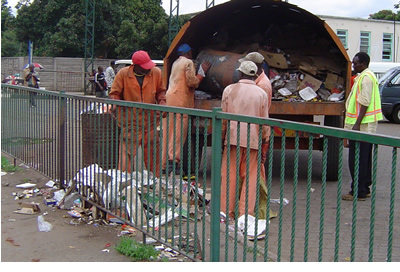Zimbabwe is for Zimbabweans!
Friday, February 19th, 2010 by Upenyu Makoni-MuchemwaIsn’t that what the Indigenisation and Economic Empowerment Regulations are supposed to do? Give back the means of production the dispossessed and economically disempowered to its rightful owners? So why does this Act sound like a fraud? In a recent article Dr Alex Magaisa points out the fallacies of this Bill.
Much like the Land Redistribution Programme which after ten years of inane political rhetoric and ‘bumper’ harvests that left supermarket shelves empty, I predict this bill will fall into that pile of so-so ideas that are poorly executed. Or rather bad ideas that only benefit the politically powerful/able/active. While this Bill follows after the fashion of the Foreign Equity policies used in Asia; it falls short of the checks and balances used to encourage foreign investment while at the same time following their principle of indigenisation. This Bill is nothing more than a myopic ‘Look East’ policy. It will not change the lot of the ordinary man on the street. As it is, all three parties constituting the Government of National Unity have failed to correctly administer the resources that we do have. We even have Ministers who are not ashamed enough to at least loot those resources in secret.
Moreover, why plunder the few companies remaining that are gingerly limping towards recovery? Why not ease the current draconian legislation? and, in the event that our Legislature is feeling particularly energetic, why not create laws that encourage innovation and the creation of new businesses and industries in Zimbabwe if for no other reason than to have a bigger pool of companies to steal from…I mean regulate. I’m no economist but it seems to me that if there are more businesses to tax, there will be more revenue collected by Zimra. Then our politicians can make their money the old fashioned way, by looting Government coffers.










